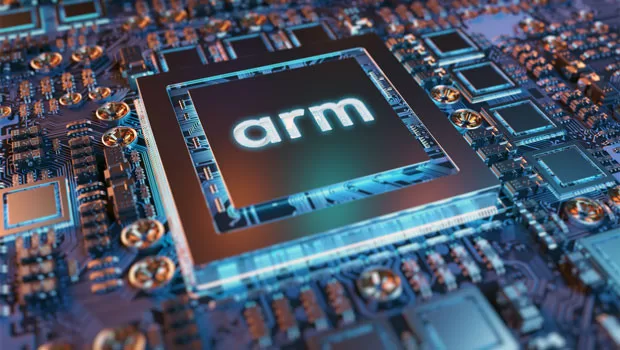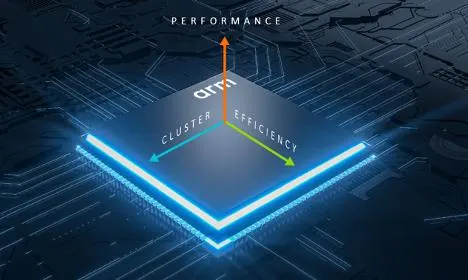Arm Holdings said on Tuesday it was launching its next-generation set of chip designs called Lumex that it has optimised for artificial intelligence to run on mobile devices such as smartphones and watches without accessing the internet.
Called Lumex, the new generation of Arm mobile designs come in four types, ranging from less powerful but more energy efficient ones designed for watches and other smart wearable devices to a version designed to maximise the computing horsepower available.
The peak performance design aims to run software that harnesses the power of large AI models without accessing cloud computing on devices such as high-end smartphones.
“AI is becoming pretty fundamental to kind of what’s happening, whether it’s kind of real-time interactions or some killer use cases like AI translation,” said Chris Bergey, a senior vice president and general manager at Arm. “We’re just seeing (AI) become kind of this expectation.”
The Lumex designs announced on Tuesday are part of the company’s Compute Subsystems (CSS) business, which aims to offer handset makers and chip designers a more ready-made piece of technology that enables their speedy use in new products.
The more complete designs Arm is now making for data centres and mobile phones are part of the company’s longer-term plans to grow its smartphone and other revenue through a variety of means.
Arm has also said it plans to invest more money into examining making its own chips and has hired several key people in order to do so.
The Lumex designs are optimised for so-called 3-nanometer manufacturing nodes, such as the process offered by TSMC. The series of iPhone chips Apple announced on Tuesday use a TSMC 3-nanometer process.
The company is holding a launch event in China on Wednesday to unveil the new designs because outside of Apple and Samsung the leading handset makers are located there, Bergey said.
Chip-designer Arm has announced its next-generation chip designs called Lumex, purpose-built for AI on mobile devices and PCs.
UK semiconductor company Arm designs the core architecture of semiconductor processors and instruction sets for processors, which are licensed by tech giants such as Apple and Nvidia. Yesterday (9 September), it announced Arm Lumex, its “most advanced compute subsystem (CSS) platform purpose-built to accelerate AI experiences on flagship smartphones and next-gen PCs”.
“AI is no longer a feature, it’s the foundation of next-generation mobile and consumer technology,” said Arm SVP Chris Bergey, who leads the chip designer’s client line of business.
“Users now expect real-time assistance, seamless communication or personalised content that is instant, private and available on device, without compromise. Meeting these expectations requires more than incremental upgrades, it demands a step change that brings performance, privacy and efficiency together in a scalable way.
“Partners can choose exactly how they build Lumex into their SoC [system on a chip] – they can take the platform as delivered and leverage cutting-edge physical implementations tailored to their needs, reaping time to market and time to performance benefits,” said Bergey.
“Alternatively, partners can configure the platform RTL for their targeted tiers and harden the cores themselves.”

The new Lumex name was mooted back in May when the company said it was introducing a simplified product naming architecture “to better communicate these platforms to the outside world”, with each compute platform having a clear identity for the respective end market:
- Arm Neoverse for infrastructure
- Arm Niva for PC
- Arm Lumex for mobile
- Arm Zena for automotive
- Arm Orbis for IoT
- The Mali brand to continue for GPUs
‘We will be chip building’
The developments come at a time when the majority SoftBank-owned Arm is believed to be planning to build its own chips, with Amazon’s former AI chip director Rami Sinno the latest recruit to boost this ambition.
Sinno, in his role as director of engineering at Amazon-owned Annapurna Labs, played a large part in the development of Amazon’s AI chips Trainium and Inferentia. Prior to joining Amazon’s homegrown chip operation, Sinno had held leadership positions in Arm’s engineering team for more than five years until 2019.
The company has had its sights set on its own in-house manufacturing for a while now, with reports indicating as much as far back as January. In February, sources told Reuters that the company had begun hiring from its own customers and competing with them for deals as part of its plan to sell its own chips.






